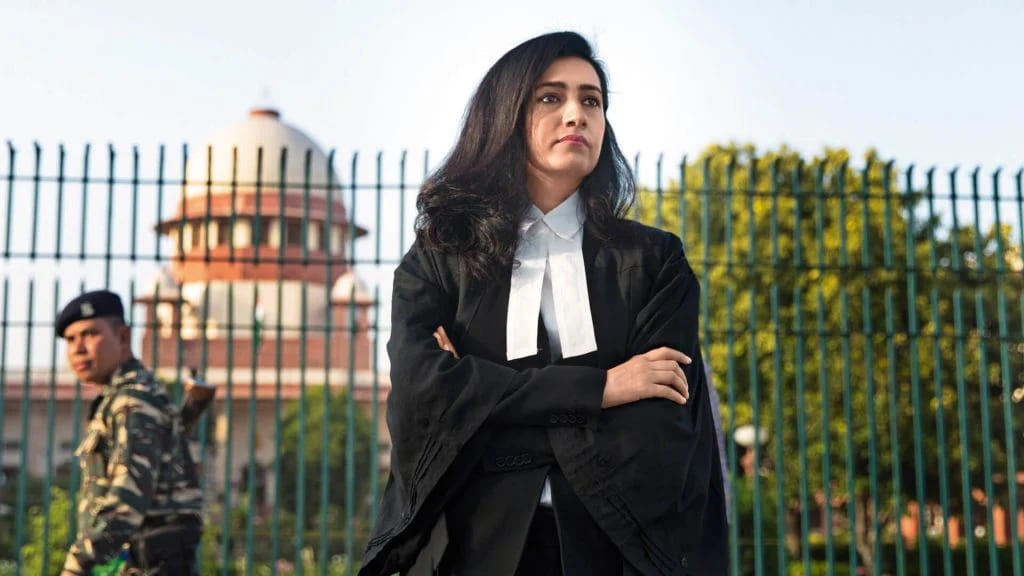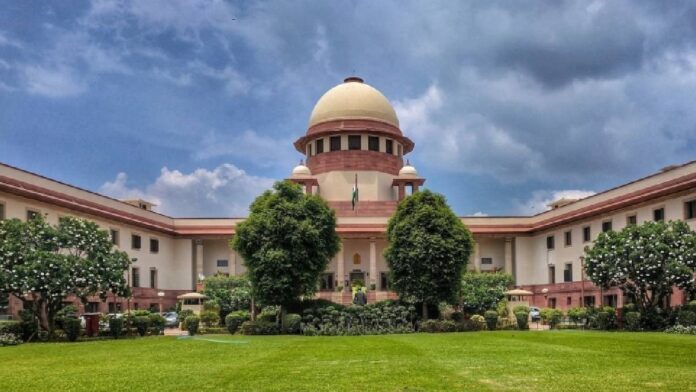The Supreme Court of India, in a stern and unequivocal stance, reprimanded a lawyer on Monday for making contentious remarks about the representation of women judges in the apex court. A visibly irked bench comprising Justices Surya Kant and Ujjal Bhuyan declared, “Enough is enough. Don’t mess with the court,” as they addressed the growing debate around gender equity within the judiciary and the legal fraternity. This landmark session underscores the pressing issue of fair representation and the steps being considered to address gender disparity in influential bodies like the Delhi High Court Bar Association (DHCBA).
Fiery Exchange Sparks Larger Discussion on Gender Equity
During the hearing of a batch of petitions seeking a 33% reservation for women lawyers in the DHCBA, an advocate representing the petitioners remarked that lawyers at the Delhi High Court had raised concerns over the lack of women judges in the Supreme Court. This comment, perceived as an attempt to “play to the gallery,” drew a sharp response from Justice Surya Kant.
“Say it 10 times if you want, but this is not how the bar conducts itself,” he retorted, adding that such statements were “adding fuel to the fire” and detrimental to the decorum of the court. The bench dismissed any further explanations from the bar body and decided to address the broader issue of gender representation comprehensively.
The matter has now been scheduled for final arguments on November 29, with a judgment to be delivered within three days. This swift timeline indicates the court’s seriousness in resolving the contentious issue and ensuring equitable opportunities for women in the legal profession.
Analyzing the DHCBA’s Stance on Women’s Reservation
The deliberations during the hearing also scrutinized the role of the DHCBA in implementing gender equity. Senior advocate and DHCBA president Mohit Mathur submitted video recordings of the general body meeting where discussions on reserving seats for women took place. Out of eight clips, the Supreme Court noted that only three were relevant to the issue.
The petitioners argued that the DHCBA had disregarded explicit directions from the top court, offering only a “ceremonial” post of joint treasurer to women, which was seen as inadequate. Earlier, in a September 26 directive, the Supreme Court had mandated the reservation of the treasurer’s position for women in addition to at least one more post among the office bearers. Furthermore, the bench had suggested that three out of ten executive committee members should be women, with at least one being a senior designated advocate.
The DHCBA’s general body meeting, however, rejected these proposals, leading the court to demand a review of the quality and reasoning behind the deliberations. This rejection, the petitioners contended, reflects a deep-seated resistance to structural changes aimed at fostering gender inclusivity within the bar.
Supreme Court’s Efforts to Elevate Women’s Representation
The apex court has been proactive in addressing gender disparities within the legal fraternity. In May 2023, the court issued a significant directive mandating that 33% of posts in the Supreme Court Bar Association’s (SCBA) executive committee be reserved for women. A similar order for the DHCBA followed, highlighting the judiciary’s commitment to enhancing women’s participation at all levels of legal practice.
In its recent statements, the court reiterated the importance of creating leadership opportunities for women within bar associations, emphasizing that these measures are not merely symbolic but critical for equitable representation in decision-making processes. By reserving key positions such as treasurer, the court aims to empower women lawyers and pave the way for greater gender parity across the legal ecosystem.

What Women Lawyers Can Expect After the SC’s Intervention?
The Supreme Court’s firm stance signals a turning point for women lawyers in India, who have long faced systemic barriers in their professional journey. By pushing for reserved seats in influential bar bodies, the court is ensuring that women have a platform to voice their concerns and contribute to policy-making within the legal fraternity.
For women advocates, this development represents an opportunity to ascend to leadership roles and challenge the entrenched patriarchal norms that have historically dominated the profession. The court’s emphasis on inclusivity also resonates with broader societal demands for gender equity, making it a significant step toward dismantling institutional biases.
Women lawyers can now expect not only greater representation but also a redefined work culture that prioritizes diversity and equality. By ensuring their presence in executive committees, the judiciary is fostering a more inclusive environment where women’s perspectives are integral to the decision-making process.
Future Implications and Call for Gender Sensitivity
The Supreme Court’s rebuke to the DHCBA and its unequivocal demand for gender inclusivity reflect a broader shift toward accountability and progressive reforms within the legal profession. With over 1.4 million registered advocates in India, women constitute only a small fraction of practicing lawyers and an even smaller percentage in leadership roles within bar associations.
By taking a strong stance against tokenism and ceremonial roles, the court is setting a precedent that could influence other professional bodies to adopt similar measures. This case also underscores the urgent need for gender sensitivity training and awareness campaigns within the legal community to combat deep-seated prejudices and foster an inclusive culture.
A Progressive Path Ahead
The Supreme Court’s directive for the DHCBA to implement 33% reservation for women lawyers is a landmark moment for gender equity in the legal profession. It reflects the judiciary’s commitment to fostering inclusivity and ensuring that women have equal opportunities to excel in their careers. As the court prepares to deliver its final judgment on November 29, the legal fraternity and society at large await a decision that could serve as a catalyst for transformative change.
For women lawyers, the road ahead is promising but fraught with challenges. The Supreme Court’s intervention has opened doors to leadership roles, but the responsibility to sustain these gains lies with bar associations and individual advocates. By embracing diversity, the legal profession can truly embody the principles of justice and equality it seeks to uphold.

